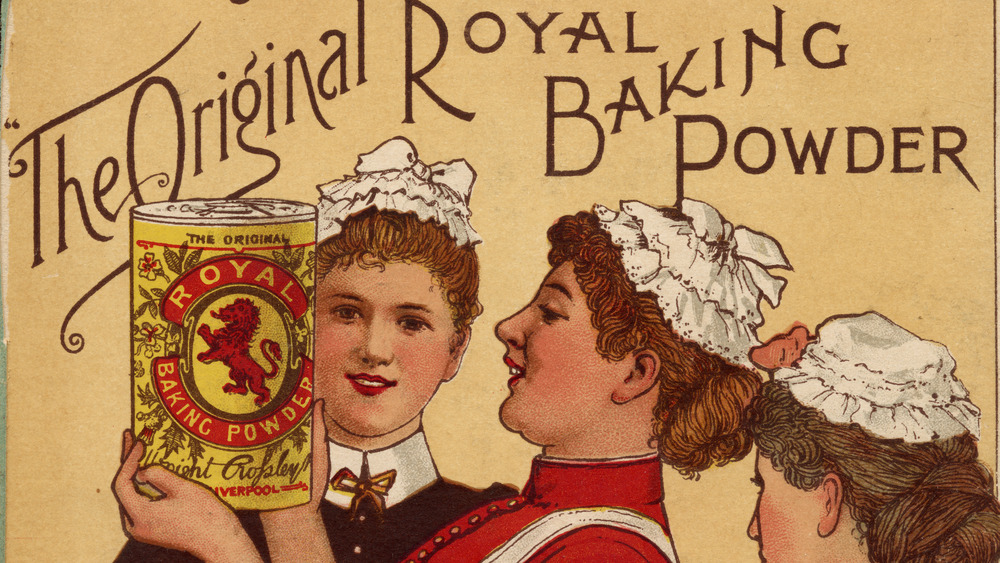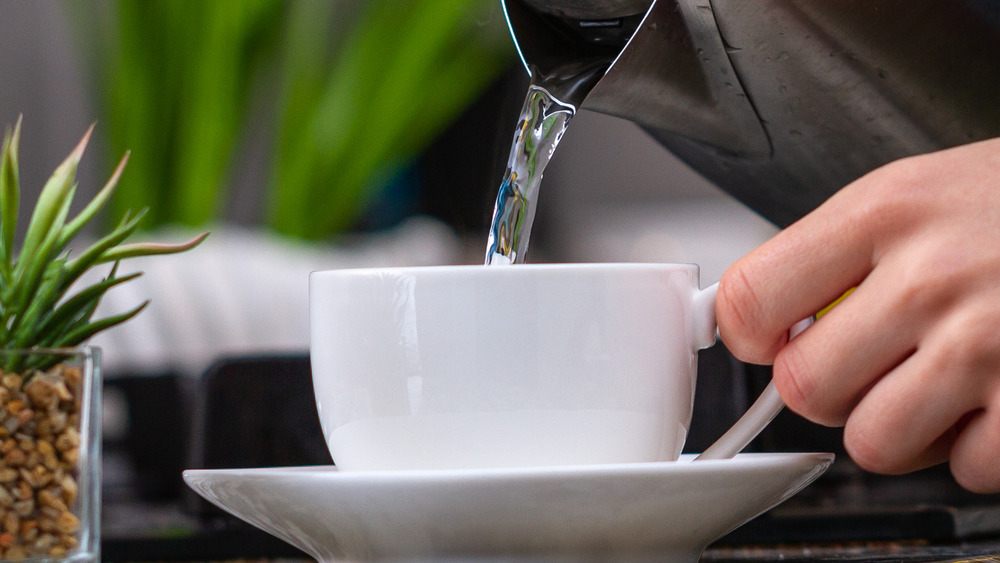Here's How To Tell If Your Baking Powder Has Expired
There are many things we can thank baking powder for. For starters, baking powder grants our banana breads and chocolate chip muffins the ability to rise to the occasion, so instead of coming out hard and rock-solid, our baked goods are light and tender.
Because baking powder and baking soda are so similarly named and because they have similar superpowers, we wouldn't blame first-time bakers for mixing up the two. While they are similar enough (fun fact: there's baking soda or sodium bicarbonate in baking powder) baking powder sets itself apart from its almost-twin because it is given a boost by an acid. This means that if you've run out of baking powder, swapping that out for just baking soda won't give you the result you're looking for (via The Spruce Eats).
So what happens if you've started on your latest cooking project only to discover that your baking powder has just cruised by its best by date?
You can use boiling water to find out if your baking powder is still good
Acclaimed pastry chef and cookbook author David Leibowitz has a quick and easy way to tell if your baking powder has the ability to perform or if it is past its prime. He recommends putting half a teaspoon of the rising agent into a bowl, then pouring about 60 ML — about a fourth of a cup — of boiling water over it. If it starts to fizzle and bubble, the powder is still usable, but if it sits quietly, it may be best to replace it.
Because baking powder is made up of several components, Runaway Rice recommends that you shake up your can for 10 seconds, or to stir up its powdery white contents with a fork, to allow for the chemicals to mix properly. These components have different weights, and sitting around will give gravity a chance to pull the heavier chemicals down, particularly if you don't use your baking powder often. The site says if you don't mix the ingredients, you could be setting your ingredient up to fail the boiling water test, which takes no more than a few seconds to complete.

